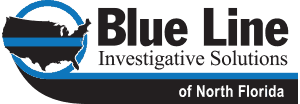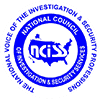Employee misconduct investigations are essential to maintaining a healthy work environment and upholding organizational integrity. Whether it’s allegations of harassment, fraud, or violations of company policies, conducting thorough and fair investigations is crucial for promoting transparency and accountability within the workplace.
Understanding the Importance of Employee Misconduct Investigations
Employee misconduct can have far-reaching consequences, not only for the individuals involved but also for the organization as a whole. Left unaddressed, misconduct can erode trust, damage morale, and create a toxic work culture. Moreover, failure to address misconduct can expose the organization to legal liabilities and reputational harm.
Conducting Effective Investigations: Key Considerations
- Establish Clear Policies and Procedures: Every organization should have well-defined policies and procedures governing employee conduct and the investigative process. These guidelines should outline the steps to be taken when allegations arise, ensuring consistency and fairness in handling misconduct cases.
- Act Promptly and Impartially: Timeliness is essential when responding to allegations of misconduct. Prompt action demonstrates the organization’s commitment to addressing issues swiftly and preventing further harm. Additionally, investigations must be conducted impartially, free from bias or favoritism, to ensure the integrity of the process.
- Preserve Confidentiality: Confidentiality is paramount during misconduct investigations to protect the privacy and reputations of all parties involved. Information should be shared on a need-to-know basis, and individuals participating in the investigation should be reminded of their obligation to maintain confidentiality.
- Conduct Thorough Investigations: Thoroughness is key to uncovering the truth and reaching fair conclusions. Investigators should gather relevant evidence, interview witnesses, and document findings meticulously. In cases involving sensitive matters such as harassment or discrimination, organizations may consider involving external experts or legal counsel to ensure compliance with applicable laws and regulations.
- Respect Due Process: Employees accused of misconduct are entitled to due process rights, including the opportunity to respond to allegations and present their side of the story. Organizations should afford accused individuals a fair and impartial hearing, allowing them to defend themselves and respond to evidence presented against them.
- Take Appropriate Corrective Action: Upon completion of the investigation, organizations must determine appropriate corrective actions based on the severity of the misconduct and applicable company policies. Corrective measures may range from counseling and training to disciplinary action, up to and including termination of employment in cases of serious misconduct.
Ethical Considerations in Employee Misconduct Investigations
Ethical integrity is fundamental to the investigative process and requires investigators to adhere to the highest standards of professionalism and impartiality. Some key ethical principles to consider include:
- Transparency: Ensure transparency in the investigative process by communicating openly with all parties involved and providing regular updates on the status of the investigation.
- Objectivity: Maintain objectivity and avoid preconceived notions or biases that may influence the investigation’s outcome.
- Confidentiality: Safeguard the confidentiality of sensitive information and refrain from disclosing details of the investigation to unauthorized individuals.
- Respect for Dignity: Treat all individuals involved in the investigation with dignity, respect, and sensitivity to their feelings and concerns.
- Compliance with Laws and Regulations: Ensure compliance with applicable laws, regulations, and organizational policies governing the investigative process.
In conclusion, employee misconduct investigations play a critical role in upholding organizational values, fostering a culture of accountability, and protecting the well-being of employees. By following best practices and adhering to ethical principles, organizations can navigate misconduct investigations effectively while preserving trust and integrity in the workplace.
Stay tuned for more insights on workplace ethics and compliance.





